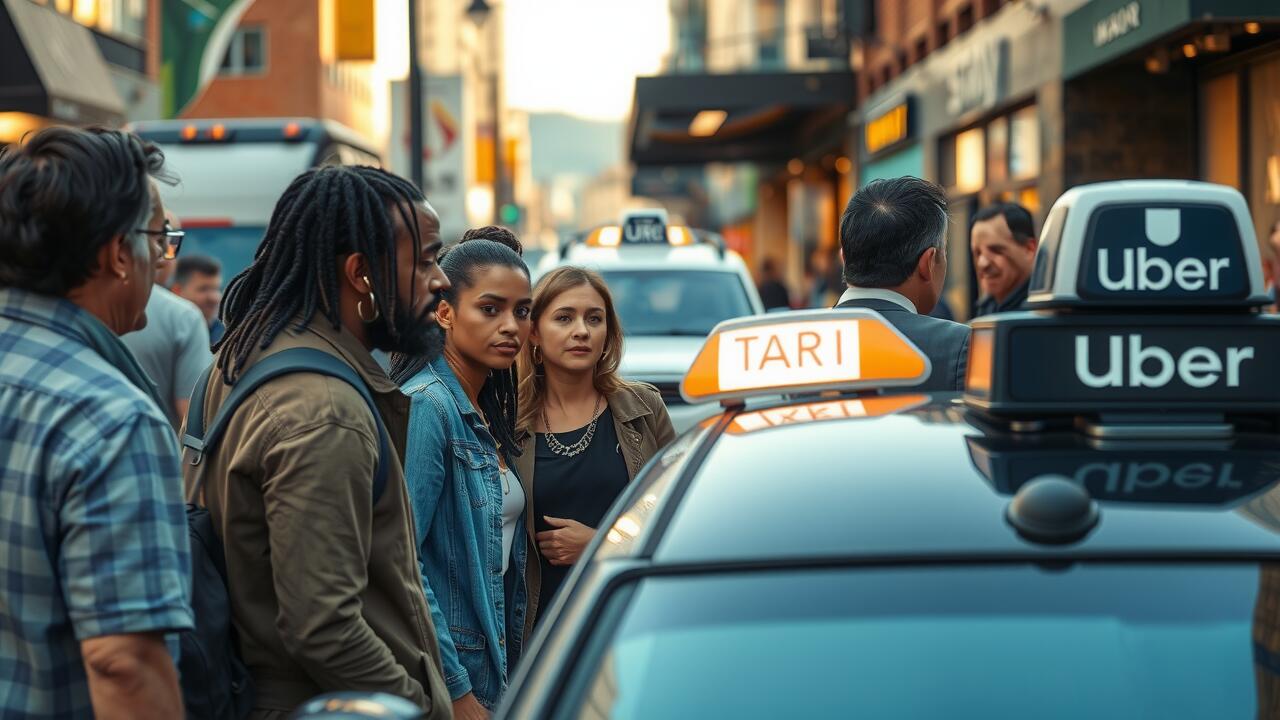Why are Uber drivers suing Uber?

Uber's Business Model
The company operates on a platform-based model that connects drivers with passengers through its app, making it convenient for users to hail rides. This system minimizes traditional costs associated with taxi services but often raises questions about the earnings and treatment of drivers.
Many drivers are classified as independent contractors rather than employees, which significantly alters their access to benefits and protections. The structure allows Uber to maintain lower operational costs, contributing to its competitive pricing but often leaves drivers feeling undervalued and undercompensated.
Implications for Driver Earnings
The lawsuits filed against Uber center around various claims, including misclassification of drivers as independent contractors instead of employees. This classification significantly impacts earnings, as drivers do not receive the same benefits and protections that employees typically enjoy. Without access to minimum wage guarantees, overtime pay, or health benefits, many drivers struggle to make a sustainable income, especially given the rising costs associated with vehicle maintenance and fuel.
Given the nature of gig work, drivers often face fluctuations in earnings based on demand in their local markets. The uncertainty around how Uber compensates its drivers adds to the financial strain, as many drivers rely heavily on the platform for their livelihood. This precarious financial situation has fueled discontent among drivers, leading to calls for a re-examination of payment structures and greater transparency in how rates are determined.
Public Response to Lawsuits
The lawsuits against Uber have sparked significant public interest and debate, with many expressing support for the drivers' fight for better wages and working conditions. Advocacy groups have rallied behind the drivers, framing their struggle as part of a broader movement for gig economy workers' rights. This support often echoes sentiments about the need for fair labor practices, especially given the rise of technology-driven platforms that have altered traditional employment landscapes.
On social media and various forums, opinions are divided. Some view the suits as a necessary step toward holding corporations accountable for their treatment of workers, while others argue that drivers chose this gig work with an understanding of its inherent risks and limitations. This discourse reflects a growing awareness of the complexities involved in gig economy work and the legal obligations of companies like Uber to their drivers.
Impact on Uber's Reputation
The ongoing lawsuits against Uber have raised significant concerns about the company’s image. Public sentiment has begun to shift as drivers share their experiences and grievances. Many consumers are starting to question the fairness of Uber's business practices, highlighting a sense of empathy towards the drivers' plight. Negative media coverage amplifies these sentiments, leading to a potential erosion of trust among users who may reconsider their reliance on the app.
As legal battles unfold, Uber's reputation may suffer further damage if drivers achieve media visibility and support from advocacy groups. The perception of the company as a fair and innovative platform could be undermined. Stakeholders, including investors and employees, might also react negatively if the lawsuits reveal deeper issues within the company’s operational framework. The overall impact on Uber’s reputation could influence its market position and future growth opportunities.
Potential Outcomes of Legal Actions
The legal actions against Uber could lead to a variety of outcomes that may reshape the company's operational framework. A ruling in favor of the drivers might pave the way for enhanced worker protections and benefits. This could include a reevaluation of how drivers are classified, potentially shifting many from independent contractors to employees. Such a change would directly impact labor rights and insurance coverage, significantly altering the economic landscape for gig workers.
Conversely, if Uber prevails in the lawsuits, it would likely maintain its current business model, allowing for continued flexibility in driver employment status. This outcome could strengthen the company's position against further legal challenges but might provoke increased public backlash. The implications of these legal battles extend beyond Uber, potentially influencing other gig economy platforms and the treatment of workers within this emerging sector.
What Drivers Hope to Achieve
Many drivers involved in the lawsuits seek a clearer classification of their employment status. They argue that being labeled as independent contractors limits their rights and protections. By challenging this classification, drivers hope to secure benefits such as health insurance, paid time off, and overtime pay. Achieving a change in their employment status could lead to a significant shift in their working conditions and overall job security.
Additionally, drivers aim to bring attention to their concerns regarding pay structures and incentives. Many feel that the current compensation model does not reflect the reality of their expenses and the effort involved in driving for the platform. They seek transparency in fare calculations as well as a fairer distribution of earnings. By addressing these issues through legal channels, drivers hope to create a more equitable relationship with the ride-sharing company.
FAQS
Why are Uber drivers suing Uber?
Uber drivers are suing the company primarily over issues related to classification as independent contractors, which affects their earnings, benefits, and protections under labor laws.
What are the main concerns of Uber drivers regarding their earnings?
Many Uber drivers express concerns that the company's business model leads to low earnings, lack of job security, and insufficient compensation for expenses incurred while driving, such as fuel and vehicle maintenance.
How has the public responded to the lawsuits filed by Uber drivers?
The public response has been mixed; some support the drivers' cause and advocate for fair treatment, while others believe that the flexibility of being an independent contractor is beneficial and should remain unchanged.
What impact do these lawsuits have on Uber's reputation?
The lawsuits can negatively affect Uber’s reputation, as they highlight issues of worker exploitation and raise questions about the ethical implications of its business practices.
What outcomes are drivers hoping to achieve from these legal actions?
Drivers are hoping to achieve better pay, improved working conditions, and a potential reclassification that would grant them benefits such as health insurance, paid leave, and other worker protections.